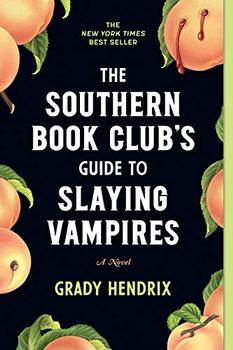Summary | Excerpt | Reading Guide | Reviews | Beyond the book | Read-Alikes | Genres & Themes | Author Bio

From the book jacket:
Late one night, exploring her father's
library, a young woman finds an ancient book
and a cache of yellowing letters. The
letters are all addressed to "My dear and
unfortunate successor," and they plunge
her into a world she never dreamed of — a
labyrinth where the secrets of her father's
past and her mother's mysterious fate
connect to an inconceivable evil hidden in
the depths of history.
The letters provide links to one of the
darkest powers that humanity has ever known
— and to a centuries-long quest to find the
source of that darkness and wipe it out. It
is a quest for the truth about Vlad the
Impaler, the medieval ruler whose barbarous
reign formed the basis of the legend of
Dracula. Generations of historians have
risked their reputations, their sanity, and
even their lives to learn the truth about
Vlad the Impaler and Dracula.
Now one young
woman must decide whether to take up this
quest herself—to follow her father in a hunt
that nearly brought him to ruin years ago,
when he was a vibrant young scholar and her
mother was still alive.
What does the legend of Vlad the Impaler
have to do with the modern world? Is it
possible that the Dracula of myth truly
existed—and that he has lived on, century
after century, pursuing his own unknowable
ends?
Comment: The Historian,
described by Salon as a 'hypnotic yarn,
saturated in authentic history and eerie
intrigue', was predicted to be one of the big
books of 2005 - and it was. Although the subject
matter (vampires and the like) would
normally classify a book into the horror
genre, The Historian is not a
particularly scary read (in reference to her
novel, Kostova says, "I promised myself that
only a cup of blood would be spilled.)
Instead, the book is steeped in historical
and anthropological detail.. Certainly there are many
moments of tension and an overwhelming sense
of impending dread, but Kostova doesn't
stoop to the methodology used by so many
modern thriller writers - short chapters,
each ending with a breathless cliff-hanger
forcing the pulse-rate up and, more often
than not, the credibility down. Instead we
get a challenging, substantial novel that
many serious readers will love.
Kostova
leads us on an intellectual quest across
Eastern Europe in the 1930s, '50s and
'70s, and also further back in time to the
heights of the Ottoman Empire when Vlad the
Impaler was famed as a brilliant military
leader and defender of his people against
the Turks, but also notorious as the
slaughterer of
more than 20,000 of his own people by
appalling sadistic means.
Inevitably some reviewers compare The
Historian to The Da Vinci Code -
not that the two books have much in common,
but simply because every book published in
the past couple of years that explores
controversial parts of history has had to
bear comparison to Brown's book. In writing
style The Da Vinci Code and The
Historian could not be more different.
However, they do have one thing in common,
both extrapolate historical facts and
hearsay into compelling fiction - the
difference is that, as one reviewer puts it,
The Historian is like a fine Burgundy
to The Da Vinci Code's
over-caffeinated diet Coke; also while they
both explore areas of controversy, The
Historian is likely to upset far fewer
people and stand up to critical inspection
better than The Da Vinci Code - after
all, how many people out there are going to
complain about Vlad the Impaler being
misrepresented!
As Publishers Weekly says, "Exotic locales,
tantalizing history, a family legacy and a
love of the bloodthirsty: it's hard to
imagine that readers won't be bitten, too!"
![]() This review was originally published in The BookBrowse Review in June 2005, and has been updated for the
October 2006 edition.
Click here to go to this issue.
This review was originally published in The BookBrowse Review in June 2005, and has been updated for the
October 2006 edition.
Click here to go to this issue.

If you liked The Historian, try these:

by Olga Tokarczuk
Published 2025
The Nobelist's latest masterwork, set in a sanitarium on the eve of World War I, probes the horrors that lie beneath our most hallowed ideas.

The Southern Book Club's Guide to Slaying Vampires
by Grady Hendrix
Published 2021
Fried Green Tomatoes and Steel Magnolias meet Dracula in this horror novel set in 1990s suburban Charleston.
Your guide toexceptional books
BookBrowse seeks out and recommends the best in contemporary fiction and nonfiction—books that not only engage and entertain but also deepen our understanding of ourselves and the world around us.